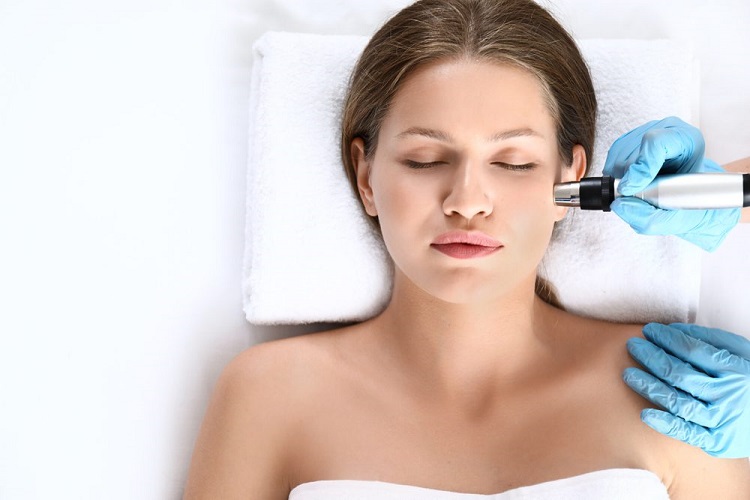Sun protection is vital in order to avoid skin cancer and premature skin aging, and UV (ultraviolet) rays are one of the main sources of damage from UV exposure.
Wearing sunglasses is an effective way to protect both the eyes and other parts of your face, such as your neck. High quality sunglasses should block at least 99% of UV rays; alternatively, use sunscreen that contains UVA/UVB protection instead.

Apply sunscreen every time you leave the house and before going outside. A high-quality, broad spectrum, water resistant sunscreen with SPF 30 or higher is highly recommended; apply 15 minutes prior to heading outdoors and reapply every two hours or after swimming or sweating for optimal protection.
Avoid Peak Hours It is wise to stay out of direct sunlight between 10 AM and 4 PM when possible; shade should be sought on cloudy days when possible or wear protective clothing such as wide-brimmed hats and light colored long sleeved clothing with long sleeves to shield arms, legs and other body parts from harm’s way.
Opt For Clothes That Show Their UPF Labels
To find UPF labels on fabrics, look for labels showing how much sun protection the fabric offers; clothes with an ultraviolet protection factor rating of 50 or greater could protect you from 98% of harmful rays from the sun.
Wear a wide-brimmed hat, lightweight long-sleeved shirts and pants when spending time outside in the sun, as well as sunglasses which block UVA and UVB rays, along with UVA/UVB protective glasses and sunglasses that block them both. Consider also investing in sunscreen that offers both sun protection as well as moisture management and antioxidant support.
Stay in the Shade
For maximum shade, look for trees, awnings or structures that provide protection. If none are available, an umbrella could also serve to provide relief.
Be sure to bring along a sun umbrella when going to the beach or outdoor pools as this provides additional UV ray protection, along with safeguarding you against harsh winds and rain.
Cover Up and Serve as a Good Role Model
Make it part of your routine to dress kids in light-weight, long-sleeved shirts, pants and hats made with UV-protective material; children should also be wearing sunscreen to further safeguard themselves.
Before giving your child any medications that could increase his or her skin sensitivity to UV rays from sunlight – such as acne or antibiotic medicines – consult their doctor or pharmacist.
If your child requires glasses, ask for ones that provide full UVA and UVB ray protection. A wide brim hat also helps shield ears, faces, and necks from direct sunlight.
Aspect skincare NZ provides a selection of sun care products designed to reduce signs of ageing while strengthening your skin’s natural barrier function.
Aspect products offer optically pure serums and moisturisers packed with correctives that have been clinically proven to nourish and protect the skin for maximum results. Furthermore, all Aspect products are free from parabens, fragrance, or any other potentially harmful preservative systems.
Read More:
- Skincare Ingredients You Need in Your Routine
- Top Skincare Tips for Men
- The Ultimate Guide to Achieving a Flawless Complexion
- Skincare Mistakes You Might Be Making
- How Often Should I Receive Omnilux LED Light Therapy Treatments to See Optimal Results
- How Often Should You Use Lalicious’ Shower Oil and Bubble Bath
- The Importance of a Consistent Skincare Routine
- Does Aotea offer any products specifically for sensitive skin?
- Does Coola Offer Any Sunscreens Specially Designed For Outdoor Activities?
- How Often Should I Exfoliate



